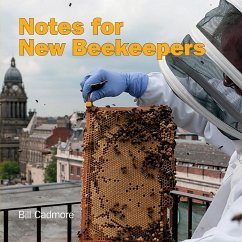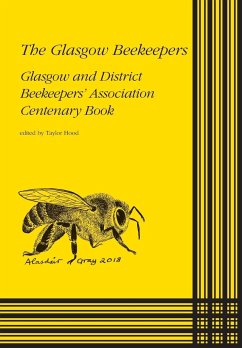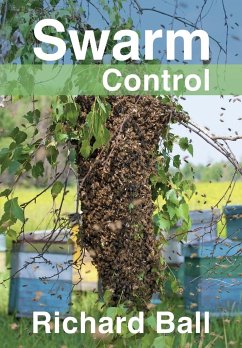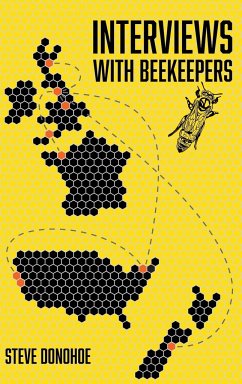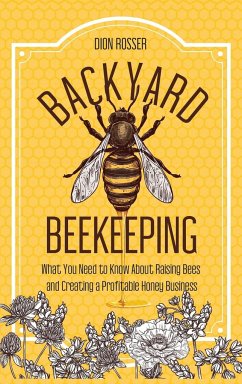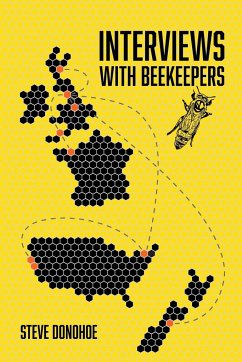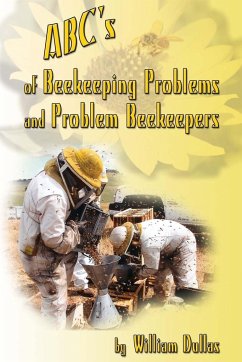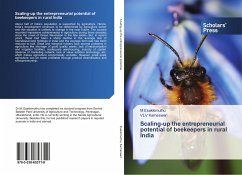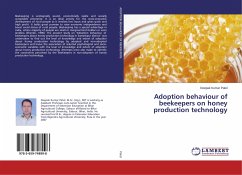
A Brief History of Scottish Beekeeping and Beekeepers
Versandkostenfrei!
Versandfertig in 1-2 Wochen
44,99 €
inkl. MwSt.

PAYBACK Punkte
22 °P sammeln!
It was Bernhard Mobus who said "dead bees don't produce honey" and Captain Thake who said that "when keeping honey-bees you should follow the natural cycle of bees". The natural cycle for bees is primarily one of colony survival through the winter, followed by the colony prospering in the Spring and then to colony reproduction, usually in late Spring early summer. Hooper in his book Guide to Bees and Honey 5th Edition (p 51 and p 101) put the beekeeper's job through the season as 'to assist the broad pattern of the annual bee colony cycle...' by assisting rapid build-up in the spring, holding ...
It was Bernhard Mobus who said "dead bees don't produce honey" and Captain Thake who said that "when keeping honey-bees you should follow the natural cycle of bees". The natural cycle for bees is primarily one of colony survival through the winter, followed by the colony prospering in the Spring and then to colony reproduction, usually in late Spring early summer. Hooper in his book Guide to Bees and Honey 5th Edition (p 51 and p 101) put the beekeeper's job through the season as 'to assist the broad pattern of the annual bee colony cycle...' by assisting rapid build-up in the spring, holding them together during peak brood rearing (i.e. stopping them from swarming), ensuring they have sufficient stores to last through the winter and to combat pests and diseases. Sometimes the primary focus of the beekeeper can be different to that of the bees where survival is their main focus. The beekeepers primary focus can be honey production, queen rearing, producing nucleus of bees to sell etc. and this focus can sometimes override the focus on bee survival. This is sometimes through ignorance, following bad practice, or perhaps even greed or penny pinching. This difference in focus can therefore be to the detriment of the bees. I know of some beekeepers who take off every ounce of honey they can in September, making up too many splits when the bees produce queen cells and even not treating for varroa properly. All these factors/ actions can be fatal to the bee colonies involved. Willie Robson of Chainbridge told me "bees want to be immortal" their instincts are of survival and yet so many beekeepers rather than working with the bees fight against their natural cycle and behaviour and therefore are not working with the bees to survive and prosper. We can learn much from the past, particularly through the development and successes of past expert beekeepers. Willie Smith did not feed his bees sugar syrup unless he had no other alternative - he only took honey that was surplus to the bee colonies need, bee nutrition was important to him. What impact does, removing all the colonies honey and replacing it with some sugar syrup. I am sure it affects their temperament (more aggressive), bee morale (again something Willie Robson talked about) their motivation to live as well as their ability to fight off pests and diseases and perhaps poor larval and bee health due to poor nutrition and the consequences that this brings. I have heard of beekeepers on finding queen cells in a colony producing three or four nucleus colonies rather than just one and then later on in the season when preparing for winter trying to unite them all together as there were not sufficient bees in the colonies to survive even a moderate winter. All beekeepers need a good form of swarm prevention and control and were better than seeking the advice of a successful expert beekeeper. To control varroa we use miticides / and other chemicals. Over a short period of time they are effective in killing the varroa mite and helping the bees survive the impact of the varroa infestation but long term what effect do these miticides have on bee / queen health.



